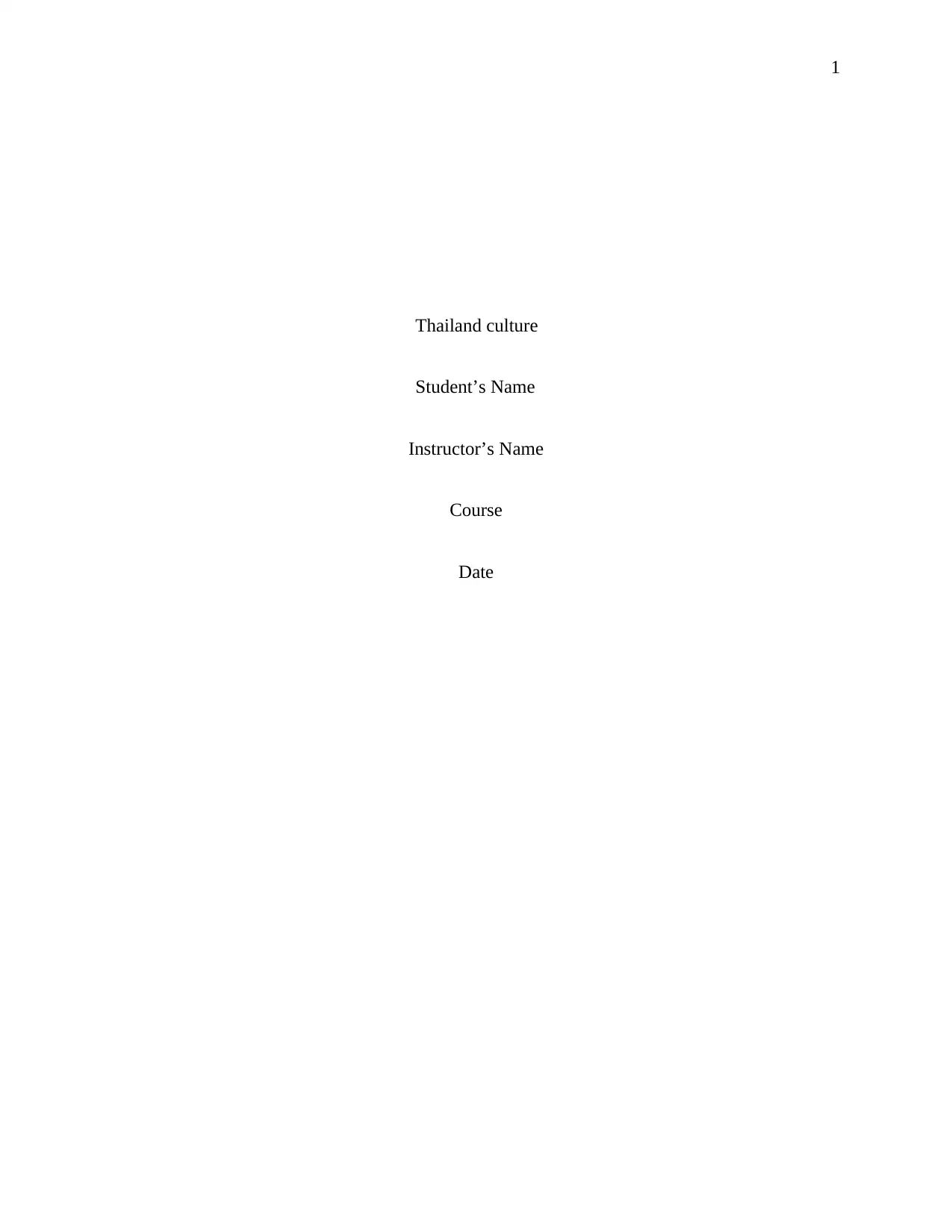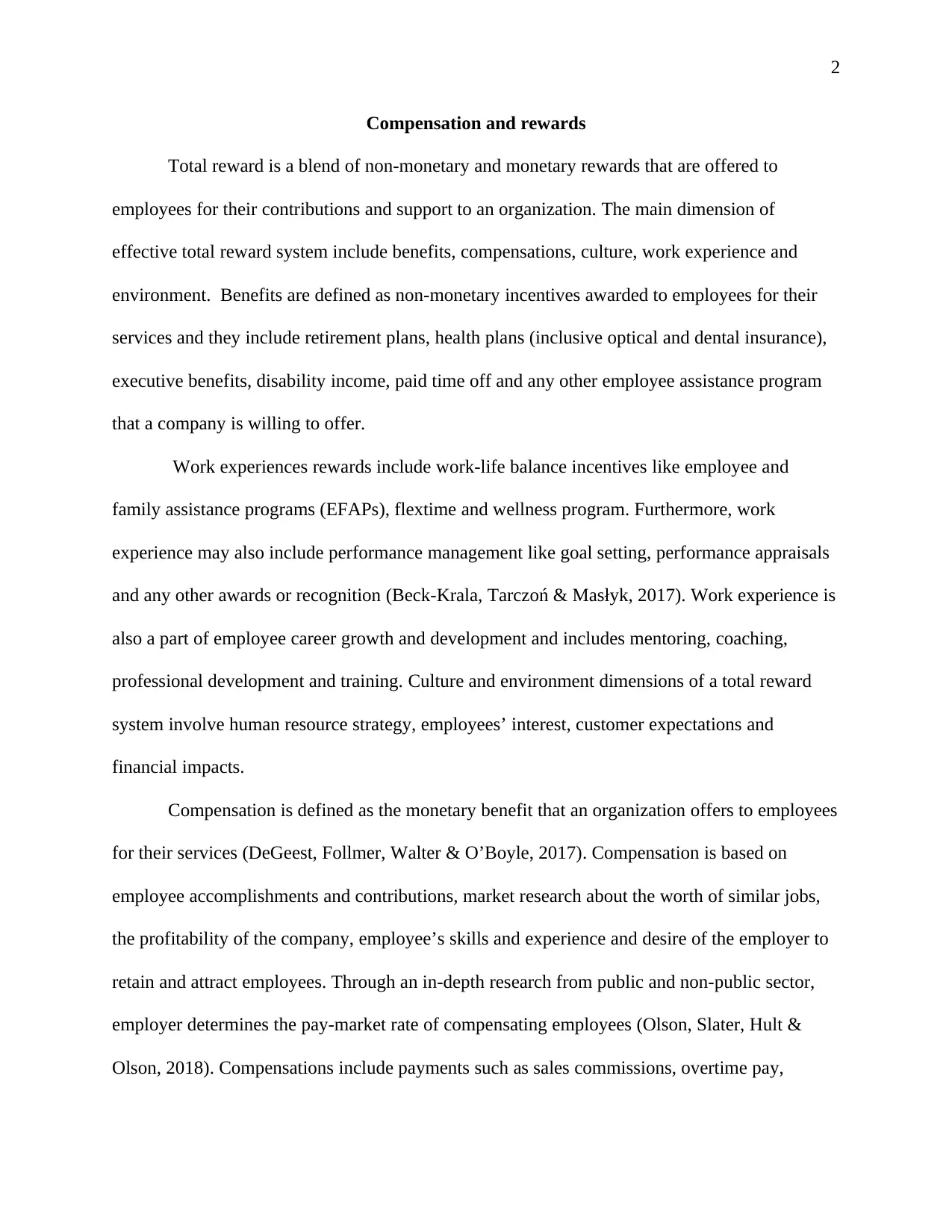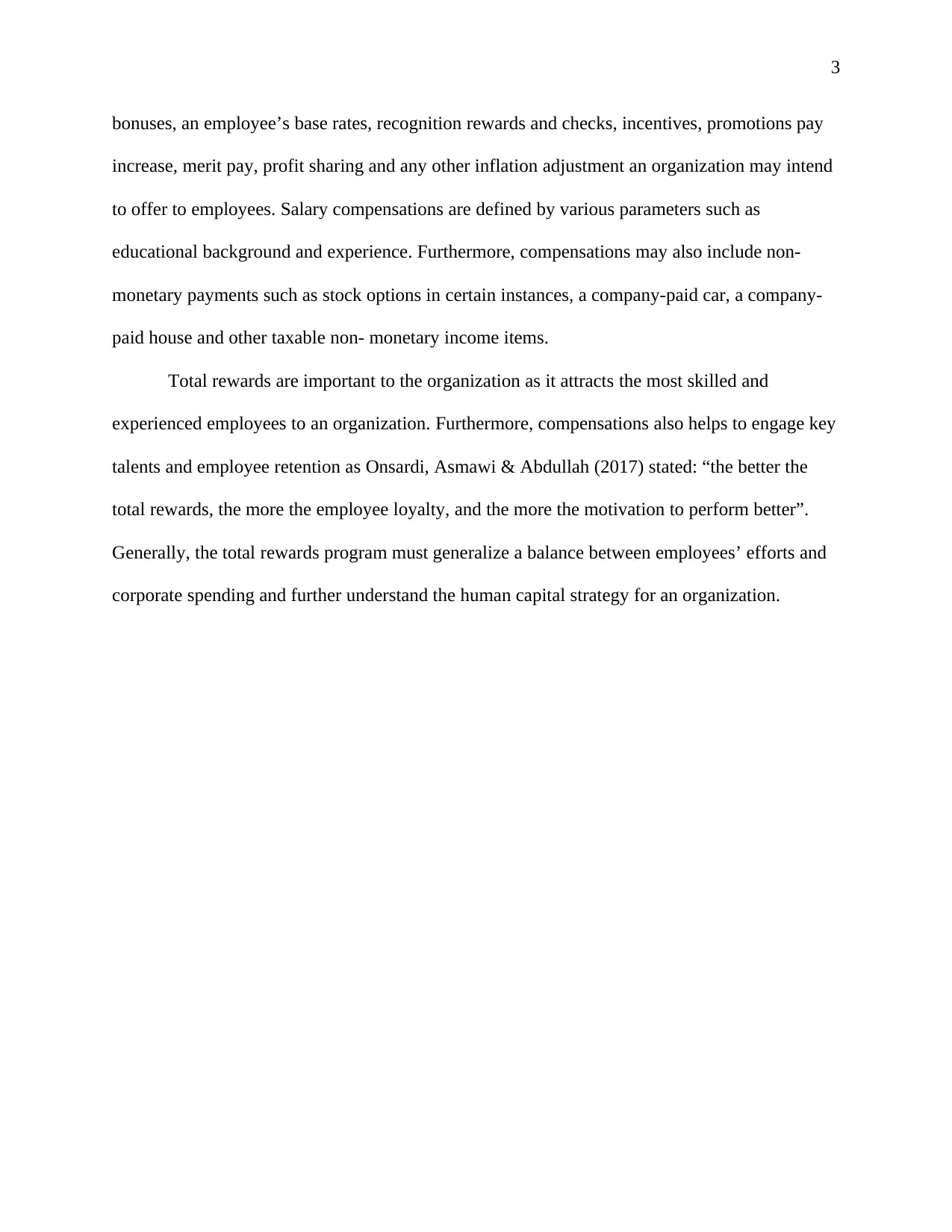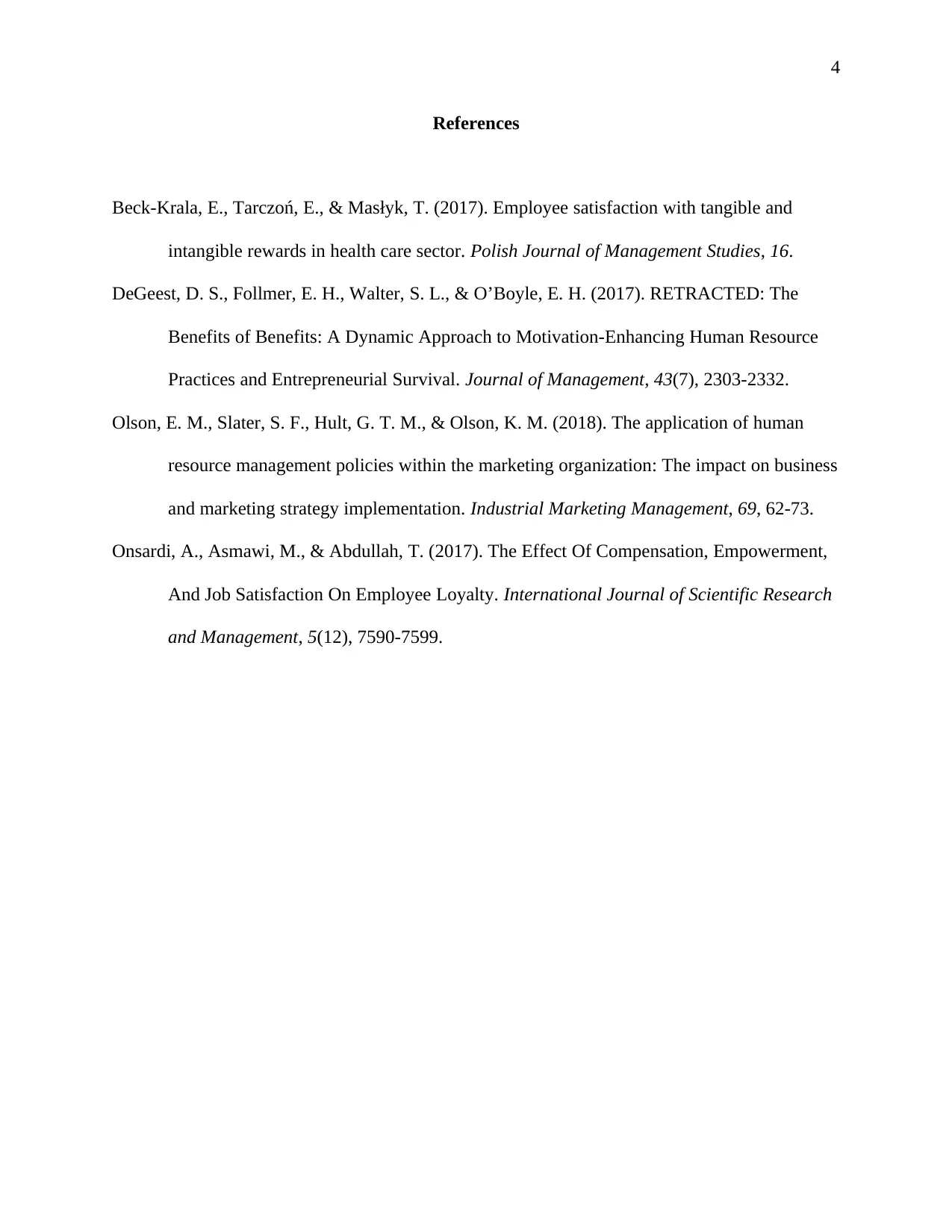Thailand Culture: Total Reward Systems - Benefits and Compensation
VerifiedAdded on 2023/04/17
|4
|547
|186
Essay
AI Summary
This essay explores the concept of total rewards within Thailand's cultural context, focusing on the blend of monetary and non-monetary benefits offered to employees. It examines the key dimensions of an effective total reward system, including compensation, benefits, work experience, and organizational culture. Compensation encompasses monetary payments like salaries, bonuses, and incentives, while benefits include non-monetary incentives such as health plans and retirement options. Work experience focuses on work-life balance initiatives and career development opportunities. The essay emphasizes the importance of total rewards in attracting and retaining skilled employees, highlighting the need for a balance between employee efforts and corporate spending. The role of total rewards in aligning with the human capital strategy of an organization is also discussed.
1 out of 4











![[object Object]](/_next/static/media/star-bottom.7253800d.svg)